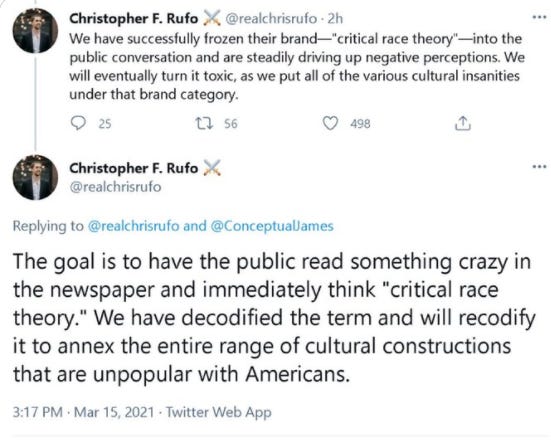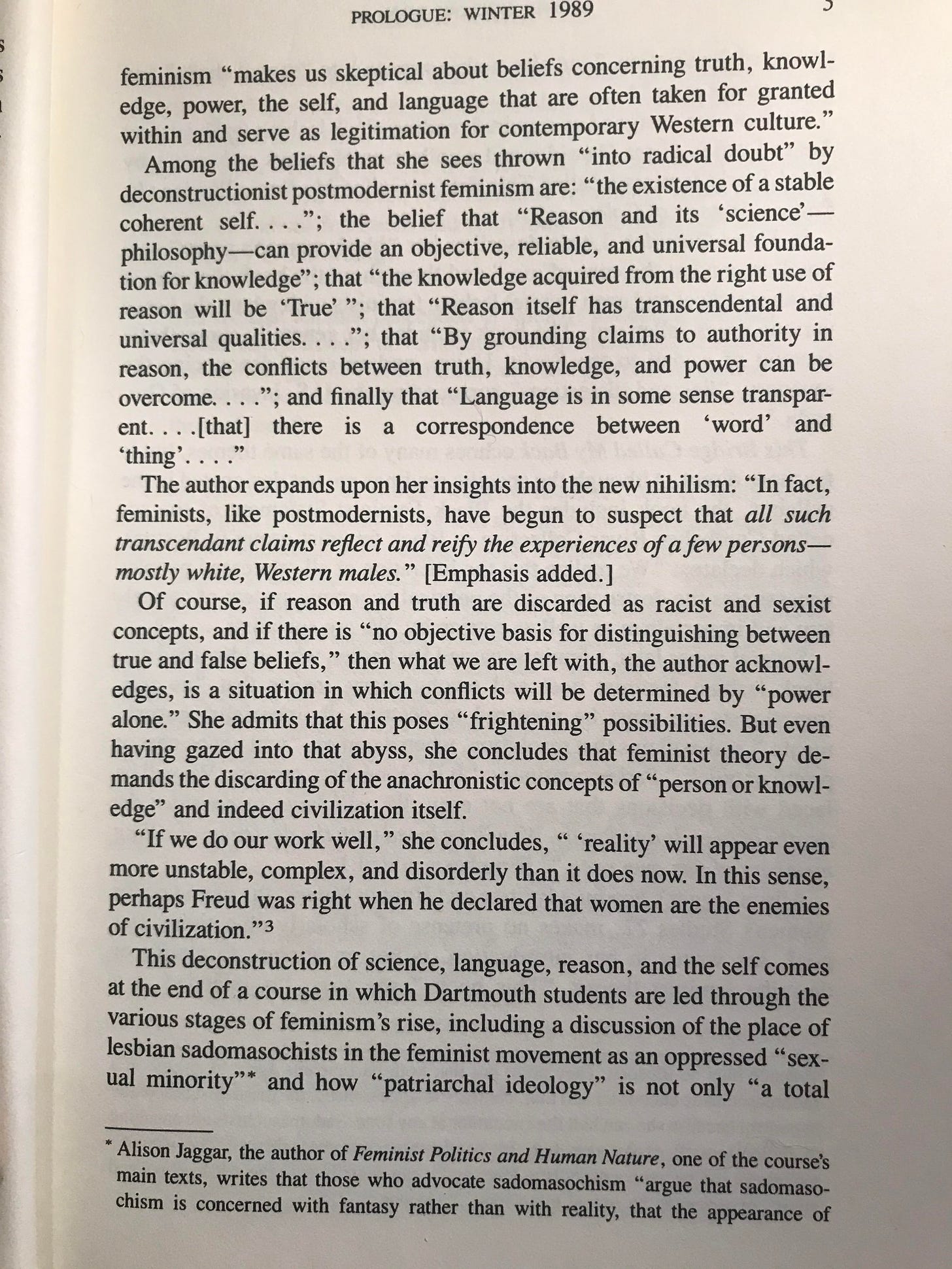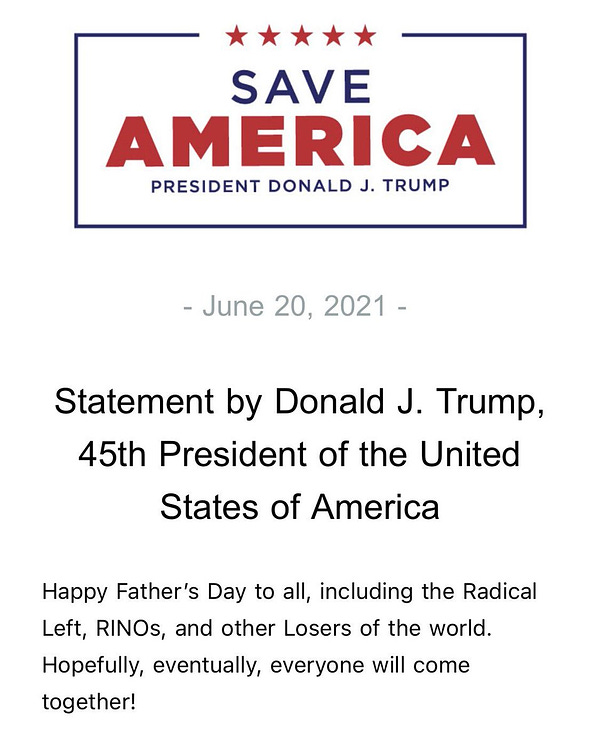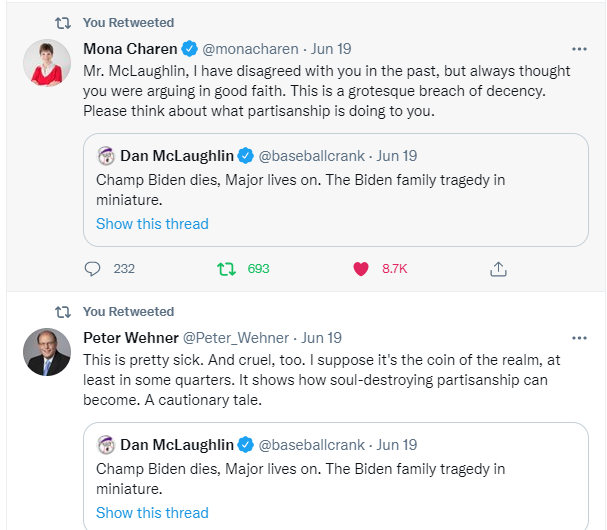Why Ban Only Critical Race Theory?
Why not Marxism? Feminism? Critical Legal Theory?
“Elementary school teachers, administrators and college professors are facing fines, physical threats, and fear of firing because of an organized push from the right to remove classroom discussions of systemic racism.” — Axios
Welcome to the Summer Solstice, and our season of endless Kulturkampf.
Much of our ongoing struggle now centers on the push to ban the teaching of “critical race theory,” which is an interesting exercise, given that few of the legislators or media critics seem to know exactly what the term means.
But precision is not the point. CRT has come to stand for virtually any discussion of race that annoys, provokes, or offends. As anti-CRT activist has Christopher Rufo has explained:
So they are playing a (race) card, not making an actual argument. They may not understand what it means, but they know that this is a way for them to push back (and shut down) debates about racial injustice. Any concerns about the history of racism or police violence can be simply dismissed: “See, what you're doing is Critical Race Theory.”
I regret to inform you that this includes simply making shit up.
Some of the allegations Rufo laid out… are not supported by the evidence he produces, and others are stretched beyond the facts.
But it is one thing to push memes on Twitter, quite another to draft legislative bans on ideas or theories (think evolution and the Scopes Monkey trial). Even some of CRT’s fiercest critics are skeptical of the legislative offensive.
Andrew Sullivan, in particular, has been relentless in his criticism of the ideology behind race theory. As our colleague, Jim Swift, noted last week, Sullivan recently highlighted an incident in which an Illinois high school that was apparently teaching students that the question “What does it mean to be white?” can be answered with “segregation,” “individualism,” and “focus on intentions over impact.”

But, the attempt to write legislation banning this sort of thing, Sullivan writes, has been a fiasco.
Many of the bills attempting to ban CRT in public schools are well-intentioned and do not, in fact, ban CRT. But they contain wording to constrain the kind of teaching that is built on CRT that is far too vague, could constrain speech in countless unforeseen ways, and are pretty close to unenforceable. (When people are proposing body-cameras for teachers, you know they’ve gone off the edge.) Most of these bills, to make things worse, strike me as unconstitutional. And they cede the higher ground.
In Tennessee, for instance (as David French points out), legislation bans “Promoting division between, or resentment of, a race, sex, religion, creed, nonviolent political affiliation, social class, or class of people.”
This is vague to the point of incoherence, but gives a taste of the difficulty of crafting this sort of legislation.
Sullivan suggests an alternative to the blunt instrument of government suppression:
Insist that you are not attempting to ban CRT but to allow it to be taught as one idea among many in a liberal education. And do not conflate CRT with honest, painful accounts of our history, which can be taught just as well within a liberal context.
But that is not what the GOP wants right now.
Instead, as Jacqueline Alemany writes this morning, Republicans have seized on CRT “to fire up the outrage machine powering the GOP's culture wars.”
Which brings me to a serious question: Why ban just CRT? And why just now?
**
With more than a touch of defensiveness, Ted Cruz is insisting that he understands what critical race theory is all about. Over the weekend, he recounted his answer to a reporter who asked him to define CRT. “I explained to him, I said it’s a theory that derives from Marxism. Karl Marx viewed the entire world as a conflict between classes, between the owners of capital and the working men and women, the proletariat,” said Cruz. “Critical race theory takes that same Marxist concept, except it replaces class with race.”
Marco Rubio also tried his hand at a definition. “Critical race theory at its core is a theory that teaches that Americans are divided between oppressors and the oppressed,” he explained.
But if we are banning this sort of thing, why stop there? If CRT derives from Marxism, why not ban Marxism too? (Or would that smack too obviously of censorship, cancel culture, and the attack on free speech?)
If critical race theory is beyond the pale, where are the bills banning or restricting all of the other criticals, like critical social theory and critical legal theory (or anything developed by the Frankfurt School)?
If conservatives really want to take on political correctness in education, why not also ban post-modernism, deconstructionism, moral relativism, and anything written by Jacques Derrida?
If we are really worried about anything suggesting that there is oppression, why not also ban the teaching of “intersectionality,” which is “the theory that the overlap of various social identities, as race, gender, sexuality, and class, contributes to the specific type of systemic oppression and discrimination.”
And since Ted Cruz and Marco Rubio are so concerned about Oppression Studies, where is the legislative push to ban Radical Feminism, including arguments that science is deeply aligned with “sexist, racist, classist, and imperialist social projects”?
This is hardly a new issue. Feminist educators have challenged “masculinist distinctions,” such as “objectivity vs. subjectivity . . . reason vs. emotion, mind vs. body.” One writer from this school of thought refers to Newton’s Laws as “Newton’s rape manual.”
Here’s a critique from one young conservative wag that was written more than 30 years ago:
So why aren’t GOP legislators banning this sort of thing? Yes, I know this is a trick question.
If the concern was really simply political correctness, their agenda would be far wider, wouldn’t it? But by focusing solely on critical race theory, they sort of give away the game, don’t they?
Not a parody.
Quick Hits
1. Will Christian America Withstand the Pull of QAnon?
Peter Wehner, writing in the Times:
Rather than standing up for the victims of sexual abuse, their reflex has been to defend the institutions that cover up the abuse. Countless people who profess to be Christians are having their moral sensibilities shaped more by Tucker Carlson’s nightly monologues than by Jesus’ Sermon on the Mount.
Perhaps without quite knowing it, many of those who most loudly proclaim the “pre-eminence of Christ” have turned him into a means to an end, a cruel, ugly and unforgiving end. And this, too, is not quite what Jesus had in mind.
2. Tucker Carlson is a Massive Leaker. Literally.
Not sure who comes off worse here, Tucker Carlson, or the media-types who use him as a source . . . and go easy on him. Make sure you read this by Ben Smith in the NYT:
“In Trump’s Washington, Tucker Carlson is a primary supersecret source,” the media writer and Trump chronicler Michael Wolff writes in his forthcoming collection of essays, “Too Famous.” Mr. Wolff, who thanked Mr. Carlson in the acknowledgments of his 2018 book, “Fire and Fury,” explained, “I know this because I know what he has told me, and I can track his exquisite, too-good-not-to-be-true gossip through unsourced reports and as it often emerges into accepted wisdom.” . . .
And Mr. Carlson’s comfortable place inside Washington media, many of the reporters who cover him say, has taken the edge off some of the coverage. It has also served as a kind of insurance policy, they say, protecting him from the marginalization that ended the Fox career of his predecessor, Glenn Beck, who also drew a huge audience with shadowy theories of elite conspiracy.
“It’s so unknown in the general public how much he plays both sides,” marveled one reporter for a prominent publication who speaks to Mr. Carlson regularly.
Another Washington journalist in his orbit said he thought Mr. Carlson benefited from his value to the media.
“If you open yourself up as a resource to mainstream media reporters, you don’t even have to ask them to go soft on you,” the journalist said.
3. How Republican States Are Expanding Their Power Over Elections
ICYMI: Via the NYT:
Across Georgia, members of at least 10 county election boards have been removed, had their position eliminated or are likely to be kicked off through local ordinances or new laws passed by the state legislature. At least five are people of color and most are Democrats — though some are Republicans — and they will most likely all be replaced by Republicans.
It’s not just Georgia.
Ms. Hollis and local officials like her have been some of the earliest casualties as Republican-led legislatures mount an expansive takeover of election administration in a raft of new voting bills this year.
G.O.P. lawmakers have also stripped secretaries of state of their power, asserted more control over state election boards, made it easier to overturn election results, and pursued several partisan audits and inspections of 2020 results.
Republicans have introduced at least 216 bills in 41 states to give legislatures more power over elections officials, according to the States United Democracy Center, a new bipartisan organization that aims to protect democratic norms. Of those, 24 have been enacted into law across 14 states.
4. “Stand Up To These Bullies”
Bill Maher had some advice for Lin-Manuel Miranda on Friday.
“Stop the apologizing,” said Maher about Miranda’s reaction to criticism that his new film, In the Heights, does not depict more darkly-colored Puerto Ricans onscreen.
“You’re the guy who made the founding fathers Black and Hispanic! I don’t think you have to apologize to Twitter.”
Miranda, the film’s wunderkind composer/lyricist/producer/co-scribe and star apologized in a social media post earlier this week for the the lack of Afro-Latinx representation in the musical. . . .
“Do I think that he really thinks he should apologize? I don’t,” inveighed the comedian on Real Time. “I think that he just wants to avoid the news cycle, and I don’t blame him.”
“This is why people hate Democrats; It’s cringey,” said the host of Miranda’s critics.
“I mean he’s a Latino making a Latino movie with a Latino cast. Not good enough. Nothing is ever good enough for these people. They’re like children. We don’t raise our children right and it’s reflected in the media. No one ever tells their children, ‘Shut the f*ck up. Sit down. Listen to your elders. Stop bitching.'”
Maher finished with, “People are going to have to stand up to these bullies, because that’s what it is, bullying. It’s ‘I can make you crawl like a dog and I enjoy it.'”
Cheap Shots
An anatomy of hole digging.
Instead of apologizing, Crank actually quadrupled down with a tortured full-length essay in NRO. It didn’t go well.


RonAnon’s Weekend












